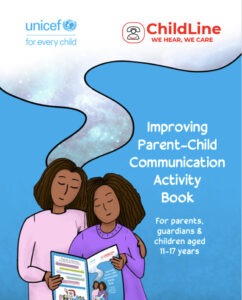Parenting and Parent Child Relationship
The parent-child relationship consists of a combination of behaviours, feelings and expectations that are unique to a parent and his or her child. This relationship varies from child to child. Close relationships with parents have also been associated with positive outcomes for teenagers such as better progress in school and less likelihood of behavior problems.
Several factors shape the relationship between the parent and child including
Characteristics of the parent
- Characteristics of the child
- Culture
- Birth Order
Parents generally use 4 styles of parenting:
- Authoritarian – aka strict. This type of parent is demanding and has high expectations but does not explain the reasoning for their rules or boundaries.
- Authoritative –This type of parent is balanced. These parents hold high expectations but they often help their children find solutions so that their high expectations can be met. Authoritative parents set limits but they will explain the reasoning behind their demands.
- Indulgent – aka permissive. These parents are lenient. They are responsive to their children’s needs but are not demanding of any appropriate behaviours in return.
- Neglectful –aka uninvolved. These parents are low in warmth and control and are generally not involved in their child’s life. They set no boundaries for their children and dismiss their children’s opinions.
Good communication is an important part of cultivating a healthy parent-child relationship. Parents who discuss matters that are important to their children provide them with information to help them make better decisions and lead constructive and healthy lives. Communication is a two way process so it is important for children to talk to their parents about what is important to them and it is also important for children to listen to their parents’ advice and instructions.
Parents’ involvement in their children’s social lives is also an important factor in the parent-child relationship. When parents know their children’s friends, children are less likely to want to keep negative company as friends and take part in harmful social activities. Introducing your friends to your parents helps them to understand your world and your personality and this in turn can have the effect of strengthening the parent-child bond.








